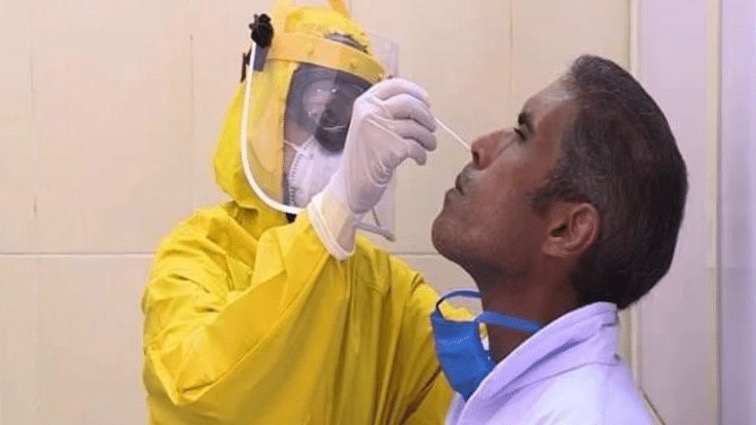Well-known Egyptian journalist and opposition politician Khaled Dawoud was released from pre-trial detention after spending over 18 months in a Cairo prison on various criminal charges, Middle East Eye reported on Tuesday, April 13. Dawoud faces charges of “collaborating with a terrorist organization”, “publishing false information” and “misusing social media.” Investigations into the charges against him remain pending, according to a statement by Dawoud’s lawyer, Gamal Eid. Local Egyptian media reported that he was released around midnight on Monday, and subsequently taken to State Security from where he retrieved his car and drove back home.
Dawoud is the former head and a key figure in the liberal Dostour (Constitution) party. He is also the spokesperson for the National Salvation Front (NSF), a coalition of liberal, secular and leftist groups founded in 2012. He was working as the assistant editor-in-chief of the Egyptian English-language news outlet Al-Ahram Weekly and was the adjunct professor of journalism at the American University of Cairo. Dawoud is well-known for speaking up against human rights violations and in favor of political rights and civil liberties for his fellow Egyptians. In the previous decades, he has been extremely critical of the regimes of former Egyptian presidents Hosni Mubarak and Mohammad Morsi, and current army general-turned-president Abdel Fattah el-Sisi. He has consistently opposed military rule in Egypt or any other type of autocratic government.
Following the military coup against president Morsi and with the return of military rule under Sisi, Dawoud was vocal about the persecution of the Muslim Brotherhood and state violence against the anti-Sisi protesters, which resulted in numerous deaths, unlawful arrests and detentions. Several Egyptian lawyers, journalists, bloggers and human rights and political activists were targeted by the Sisi regime. There were also allegations of misusing the judiciary in targeting and punishing critics and opponents of the government.
In recent years, Dawoud was a major figure in the anti-corruption protests against the government that took place across Egypt beginning from September 2019. Days after massive protests on September 20-21, Dawoud was arrested by the Egyptian security forces on September 24 while he was on his way to visit his unwell father. He was one of nearly 2,000 people arrested in the anti-corruption protests. He was put in pre-trial detention, which was renewed numerous times. Serious charges have been framed against him, for which the prosecution has still not presented any evidence.
Human rights groups and activists have noted that the charges brought against Dawoud have been similarly used against thousands of critics, opponents and dissenters by the government. Sari Bashi, research director at Democracy for the Arab World Now (DAWN), said in a statement after Dawoud’s release, “the Egyptian government has deprived Dawoud of nearly two years of his life for no reason other than his opposition to Sisi’s crushing of democracy. In Egypt, the authorities don’t need evidence or a trial – they punish dissidents by throwing them in jail and keeping them there.” DAWN executive director Sarah Leah Winston tweeted, “Best #Ramadan news ever with reports that #Egypt journalist #KhaledDawoud has been released from absurd, insane detention in prison. I’ve known Khaled for at least 15 years. Didn’t deserve to spend one minute in prison.”
In prison, Dawoud was reportedly forced to sleep on the floor and not allowed any exercise. He was barred from using his personal belongings brought to him by his family. There are approximately 60,000 political prisoners currently in Egypt. The country has been named the third-worst in terms of imprisoning journalists and fared poorly in the press freedom index ratings released by Reporters Without Borders, coming in at 166th in a total of 188 countries.
The human rights situation and the state of political and civil rights in Egypt have been going through a steady decline under the Sisi regime. International organizations and activists, including the UN and Amnesty International, have repeatedly called on the Egyptian government to unconditionally release all political prisoners and prisoners of conscience in accordance with Egyptian and international law. However, president Sisi has inexplicably denied the presence of political prisoners in Egypt, stating that the stability and security of the country is paramount.





